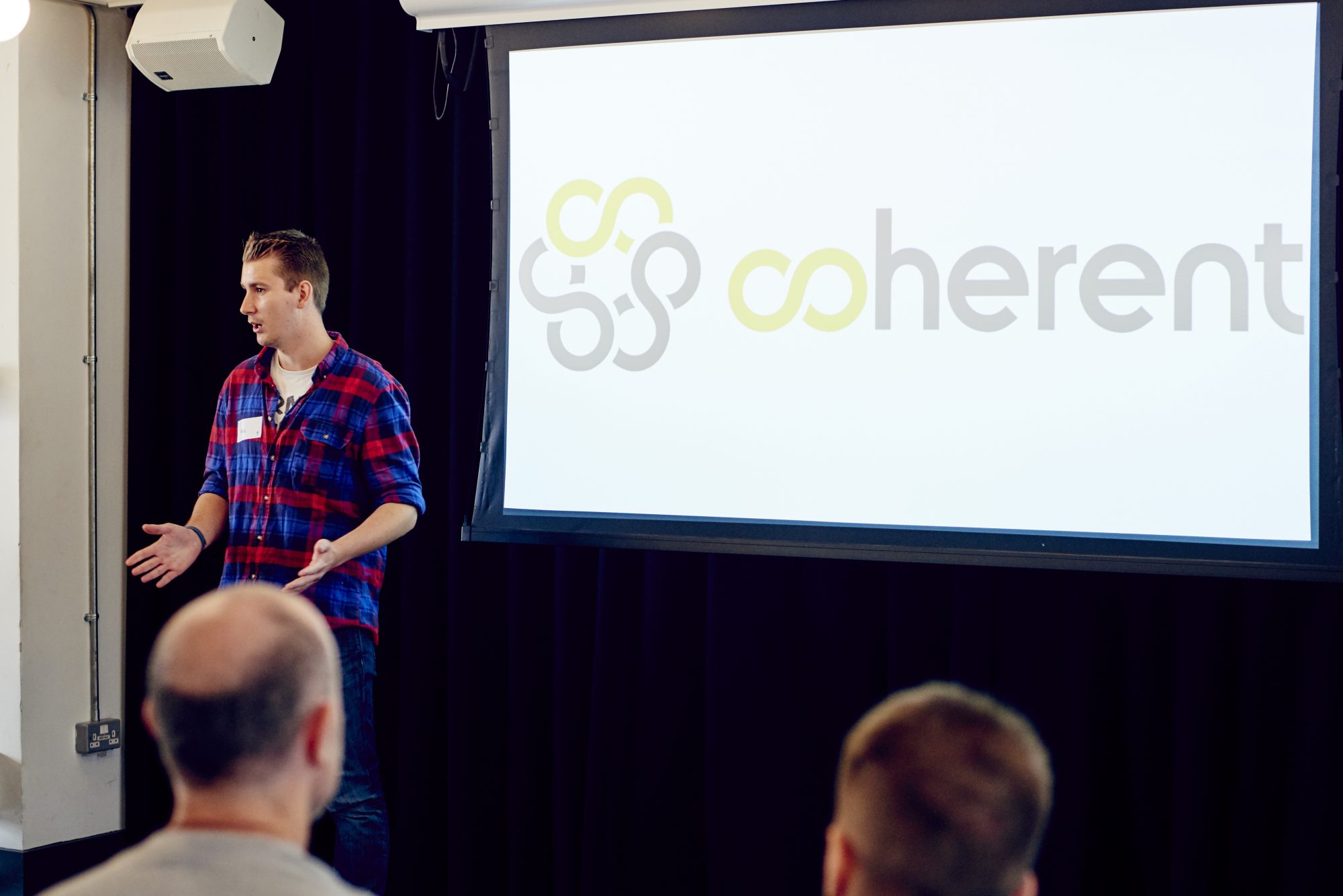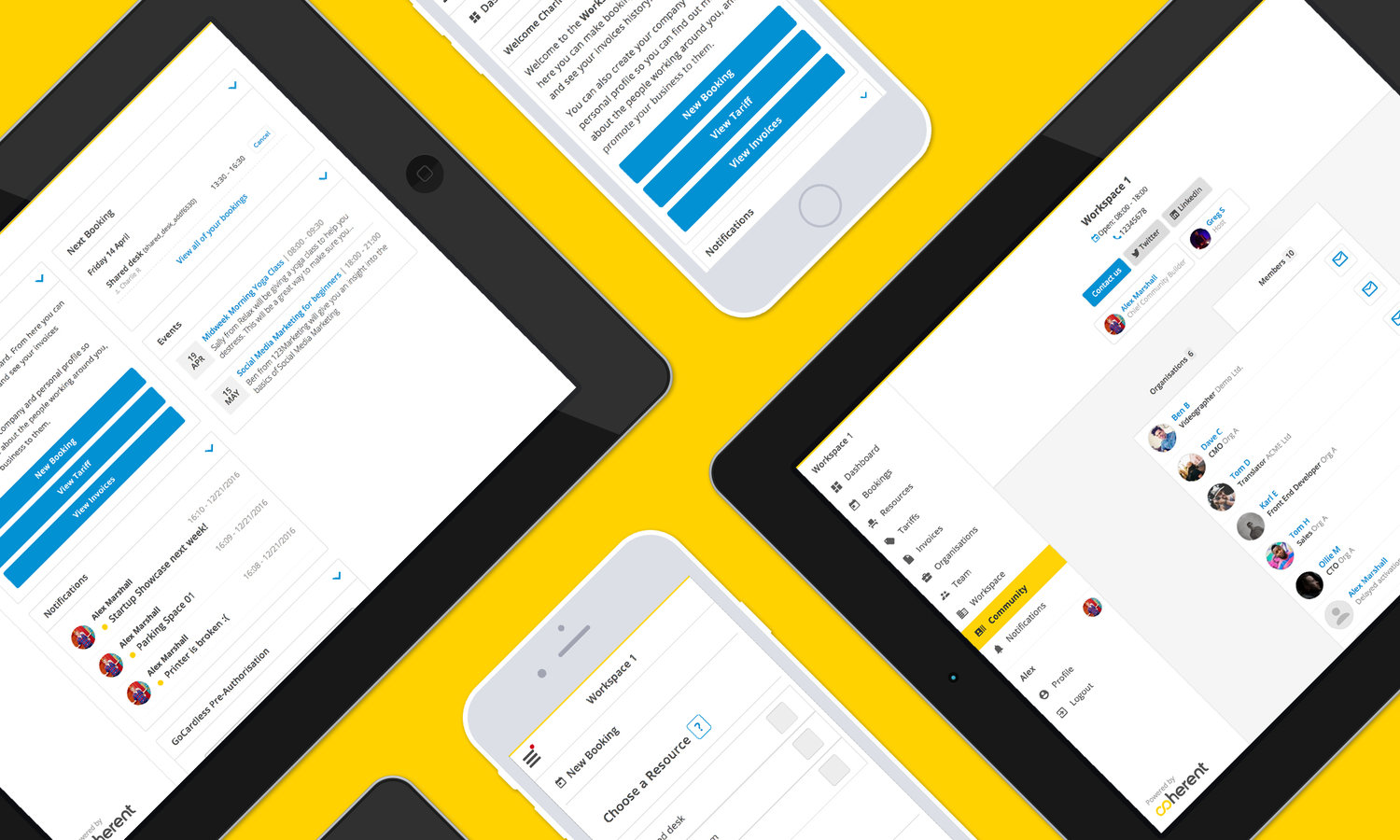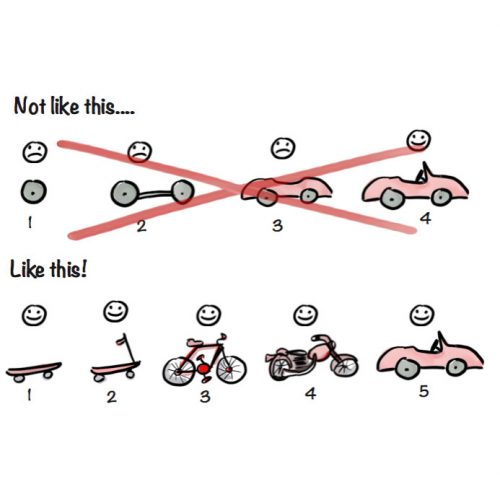For most startups, a vital indicator of success involves a good level of growth or expansion. For some this will mean gaining customers outside of their local area, setting up new offices or branches or expanding their product offering to increase interest from a wider audience.
Particularly for technology businesses existing in an ever globalised world, going international is the next step in securing a solid future.
 To share a sense of both when, how and what it means to take your startup international, we caught up with Alex Marshall (pictured right), Business Development Manager at Coherent, a startup that has been in the process of preparing for internationalisation over the past year.
To share a sense of both when, how and what it means to take your startup international, we caught up with Alex Marshall (pictured right), Business Development Manager at Coherent, a startup that has been in the process of preparing for internationalisation over the past year.
Founded in 2015 by Gavin Eddy after he’d spent almost a decade running his own co-working spaces, Coherent is an all-in-one shared workspace management platform that takes care of workspace admin and connects communities.
Simpleweb: So tell us a bit more about your plans and what made you decide to take the leap into international markets?
Alex Marshall: We’ve been building the Coherent software for somewhere between four and five years, so we’ve spent a long time testing the product with our users, attracting new customers of different shapes and sizes and seeing the variation across the UK in terms of how different workspaces are run.
Through this we’ve been able to build-in additional features and flexibility so the product is ready to be sent out into a wider audience.
On the business side, there’s been a lot of co-working space activity all over the world at the moment, particularly in Europe where we’re going to lay a fair amount of our focus in the beginning.
It’s a really interesting industry to be in because the coworking industry itself in terms of actual office spaces is, at a push, probably 20 years old in the US market. In the UK it’s more like 15 years old. So the fact that that industry is so young means that the industry for coworking management software is even younger.
The competition is definitely there, but it’s not so fierce that we can’t make our mark.
SW: Is there ever a right time or a wrong time for startups to go international?
AM: It varies so much from company to company and industry to industry, so there isn’t really a blanket rule.
However, you need to make sure you’ve got a really solid foundation in your product and also your business in terms of the team you’ve got behind it. Going international means you’re going to get an influx of new customers, but you’re probably also going to get an influx of new customers with a completely different set of needs that require new or different features.
There’s something to be said for taking a step back and getting everything right on a small scale before expanding
Unless you’ve got the team, structure and processes behind you, you’re unlikely to survive long term on the international market because you won’t have the in-house support to be able to handle it.
I think if we’d tried to go international after only a year of development, the product would naturally not have been quite as strong, and wouldn’t have had enough features in place to address the wider set of needed that an international audience would have.
It’s very easy for companies to think that they’ve got to go global as soon as possible when they see a global audience they could capitalise on, but there’s really something to be said for taking a step back, slowing down a bit and getting everything right on a small scale before expanding things onto a much larger scale.
SW: What are some of the challenges you’ve faced in preparing for internationalisation?
AM: On the development side, the biggest challenge we’ve faced has been dealing with time zones.
The core of Coherent is around the invoicing and billing process, to make sure that coworking members are billed on time – and a lot of that is based on dates and times.
For example, making sure that it if an invoice is supposed to be raised at 1am on the 1st of the month, that it’s raised at 1am on the 1st regardless of the country it’s in.
Developing a marketing strategy that’s broadly appealing to different countries, cultures and languages is going to be tricky
Building that in and making sure that every single piece of Coherent is working according to the relevant time zone when there’s so many areas of the software that use dates and times was a bit crazy.
In terms of the business, although we haven’t started the full international marketing push, we’ve been getting quite a bit of interest from international co-working spaces contacting us to find out if Coherent is ready.

Going forward, trying to develop a marketing strategy that’s as broadly appealing as possible to different countries with different cultures and languages is going to be tricky.
If you’re writing a blog post for example, you can’t assume it’s going to appeal to customers in the UK, the US and Germany for example.
We don’t have an enormous marketing team so we can’t have individual team members focused on specific countries. However, I think this will be a fun challenge and is something I’m looking forward to working on.
SW: What advice would you give to other startups looking to start planning their internationalisation strategy?
AM: Something that we have done quite successfully on the development side of things, is breaking things down into smaller, more manageable chunks. Knowing what hurdles a product like ours might face internationally was key to being able to break those down into individual issues (such as time zones, VAT, currency, languages etc) and then approaching them in a step-by-step manner.
There’s a phrase that’s stuck with me to ‘stay local when you can, go global when you must’
Starting off you need to have a really good understanding of how the core of your product works so you can prioritise which features you need to add in order for it to work on an international scale.
We knew building in time zone functionality into our product was the most important thing for us for the product to work internationally, and our biggest hurdle too, so we prioritised this. Alternatively, translations of the product into native languages we see as more of a ‘nice to have’ feature because the product will still work without it.
For any startup, focus on what’s most important in order for your product to work internationally and do that stuff first – all the extra bits and pieces can come at a later date.
I did international marketing at university and there’s a phrase that’s stuck with me to ‘stay local when you can, go global when you must’.
It’s saying to keep things as small as possible for as long as possible because that’ll mean you’ll keep developing the product, working on the team and on the actual business behind it. Then, when it gets to a point when you’ve satisfied your local market or a new international market emerges, your product and business will be ready to expand into it.
If you’d like to discuss your startup or project, get in touch with Simpleweb today.




